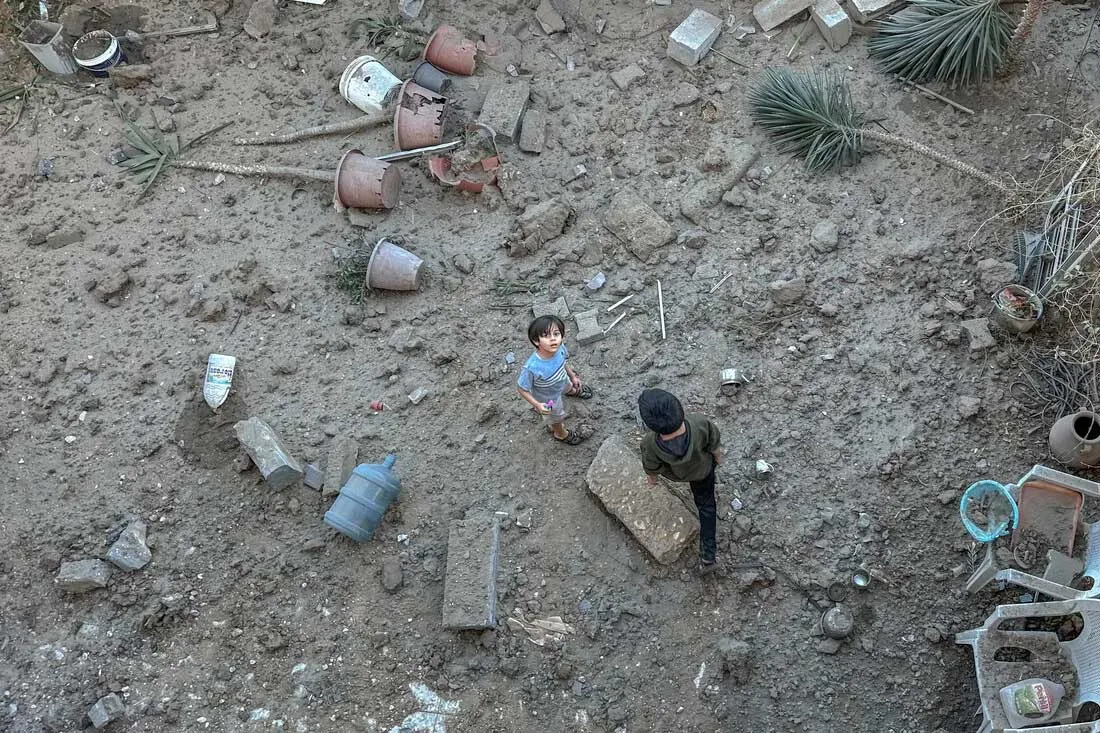January 12, 2024 – Ahead of the one-hundred-day mark since the October 7th attacks and the devastating conflict that has caused unimaginable destruction and civilian casualties, CARE is gravely concerned about the mounting levels of hunger and the catastrophic and life-threatening conditions pregnant women, young mothers, and newborns are facing in Gaza. With 60% of Gaza’s hospitals out of commission and the remaining ones only partially functioning, women are increasingly forced to deliver babies in overcrowded and unclean shelters without medical support.
“There is no doctor, midwife, or nurse to support women during labor. There is no pain medication, anesthesia, or hygiene material when women give birth,” said Hiba Tibi, CARE’s Acting Deputy Regional Director for the Middle East and North Africa. “’Will I survive childbirth? Will my child survive? What will happen to my other children?’ These are very real dangers pregnant women and young mothers in Gaza have faced for the past 100 days, with no end in sight.”
This coming Sunday, January 14, will mark one hundred days since the escalation of the conflict. Within that time period, approximately 17,000 women have given birth in horrific circumstances – with increased reports of births in which women and their children could have potentially died or suffered serious damage and cases of sepsis. Maternity, trauma, and emergency care services are highly limited. Moreover, the deaths of at least 310 medical staff, hundreds of attacks on health facilities, and a lack of supplies are further exacerbating an already impossible situation. In the north of Gaza, only 50 incubators needed to keep premature babies alive are still working, and power shortages limit the use of such lifesaving equipment.
“Pregnant women tell us they are terrified of likely complications from war, malnutrition, and disease outbreaks,” said Ms Tibi. “They are afraid the ongoing trauma they experience and the shock of losing loved ones will cause them to go into labor too early. They know there will be no help if something goes wrong. The psychological and physiological stress thousands of pregnant women are under is unbearable and will continue to impact an entire generation of young mothers and their children.”
Figures for maternal and infant deaths have not been updated since the start of the war last October. However, an estimated 40% of current pregnancies are considered high-risk, while only 15 out of 36 hospitals are still operational and are filled at 250% of their capacity.
“From what we hear from our staff and partners, there are women who do not survive childbirth. Premature babies die or will have to live with lifelong disabilities, as they do not receive the necessary medical support. One hundred days of war have brought darkness and destruction, and the suffering, especially of mothers and children, is simply unimaginable”, said Ms Tibi. “The joyous time of having a baby is now overshadowed by dread and desperation given the many dangers mothers and their babies are facing.”
Malnutrition, cold, lack of clean water, and appalling hygiene conditions pose additional risks to the lives of women and children. They are forced to drink unsafe water, which means that dehydration and waterborne diseases are growing threats, particularly to vulnerable people such as pregnant women, young mothers, and small children.
CARE reiterates its calls for an immediate ceasefire, the release of all hostages, and urgent action to ensure access to healthcare, food, water, and the other basic necessities of life for Palestinians in Gaza, especially women and children, in a situation where one in four households is now facing starvation. The international community must act swiftly to avert a deepening humanitarian catastrophe.
CARE International has been operating in Gaza and the West Bank since 1948. Prior to the current conflict, we were supporting about 200,000 Palestinians in Gaza and we continue to support about 300,000 in the West Bank to meet basic food needs, improve farming and agriculture, empower women to earn an income, support women’s leadership, and improve health programs focused on gender-based violence, sexual and reproductive health, and children’s mental health.
Since the escalation of the conflict, the CARE team in Gaza was able to distribute hygiene kits, shelter items such as blankets and mattresses, and drinking water to over 91,000 vulnerable displaced people. CARE also reached over 30,000 people with medical support, including medications, medical supplies, and primary health services.
For media inquiries, please contact: usa.media@care.org

